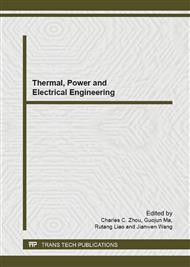p.3
p.7
p.11
p.18
p.23
p.29
p.37
p.42
The Influence of Intake Temperature and Excessive Air Coefficient on the Performance of a Gasoline HCCI Engine
Abstract:
Mean indicated pressure and indicated thermal efficiency of practical cycle are essential criteria to evaluate the performance and fuel economy of the engine. The HCCI tests fueled with gasoline are conducted on a modified engine. With the change of intake temperature and excessive air coefficient, mean indicated pressure and indicated thermal efficiency are measured. The results show that with the increase of intake temperature, mean indicated pressure and thermal efficiency tend to increase, and with the increase of excessive air coefficient mean indicated pressure increases while the rising rate of indicated thermal efficiency decreases.
Info:
Periodical:
Pages:
3-6
DOI:
Citation:
Online since:
August 2013
Authors:
Price:
Сopyright:
© 2013 Trans Tech Publications Ltd. All Rights Reserved
Share:
Citation:


